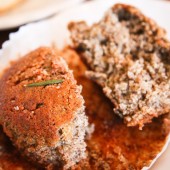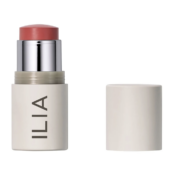As someone who’s a firm believer that to “put an egg on it” makes everything better (and prettier!), I’m excited to announce that I’ll be partnering with the American Egg Board on a series of posts this year—everything from recipes to site visits. Eggs are my never-fail, what’s-for-dinner solution.
I’ve been learning a bit more about eggs as a consequence, and trying to understand the difference between labeling like cage-free and free-range.
Here’s what I’ve gleaned, in case you’re interested, too, along with what may be my favorite way to enjoy eggs these days…
Cage-free, free-range, organic, nutrient-enhanced… Are you confused? I was.
Cage-free, also sometimes called free-roaming, means that the hens may roam in a building, room or open area, usually in a barn or poultry house, and have unlimited access to fresh food and water. Some may also forage for food if they are allowed outdoors. Cage-free systems can include free-range hens.
Free-range hens have access to outdoors in accordance with weather, environmental or state laws. In addition to consuming a diet of grains, these hens may forage for wild plants and insects and are also sometimes called pasture-fed hens. They are provided floor space, nesting space and perches.
Conventional eggs are laid by hens living in cages with access to feed and water. The conventional system is designed primarily for production efficiency, but mortality tends to be lower. The birds are protected from the elements and from natural and unnatural predators.
Organic is used to describe eggs produced according to national U.S. Department of Agriculture organic standards—which address production and handling. Organic eggs are produced by hens fed rations having ingredients that were grown without most conventional pesticides, fungicides, herbicides or commercial fertilizers. Antibiotics are prohibited.
Enriched Colony means that the hens are provided perch space, dust bathing or scratch areas, and nest space to allow them their inherent behavior. Enriched colony systems are American Humane Certified.
It turns out that the nutrient content of eggs is determined by the feed.
I was interested to learn, for example, that insects and other organic matter in the diet of free-range hens may result in a very small increase in egg protein content. And feed including flax, marine algae or fish oils increases the omega-3 fatty acid content in yolks. Hens who eat marigolds make eggs high in lutein, a nutrient that has been shown to reduce the risk of macular degeneration.
Whichever you prefer, they’re delicious. Here’s my favorite way to enjoy them…
I’ve talked before about the secret to perfect soft-cooked eggs (a lesson I learned from Cooks Illustrated). Lately I’ve been making them for breakfast (or sometimes dinner) and pairing them with “soldiers” (which, in British English is a thin slice of toast, perfect for dipping into runny egg yolks). But most of the time, I’m just generously buttering up crusty toast to top with the perfectly soft, runny egg, and a sprinkling of sea salt.
The secret is steaming the eggs, rather than boiling them. It’s so much faster—you’ll be doing it every day!

All I do is bring a 1/2-inch of water to boil (which happens in no time!) before placing my eggs in the water, lowering the temperature to medium, and re-covering it. Then I set a timer for 6-1/2 minutes. Tender, warm whites and reliably runny yolks–whether one egg or six—every time.
Tip: Everyone tells you to tap the egg to crack and remove the top of the shell, but it’s much easier to gently saw it off. You can use a kitchen knife or even the bread knife that you used to slice your soldiers. Far less messy!
How do you like your eggs? And do you pay attention to these labels or choose based on price?
P.S. A few more of my favorite egg recipes I’ve shared on Hither & Thither so far…
Perfect Scrambled Eggs; Egg Salad Tartine; My default Airplane Snack; and Homemade Pizza with Mushroom, Egg, Ricotta & Arugula
Looking forward to more in the coming months!
Visit IncredibleEgg.org/GoodEggProject to learn about where eggs come from.











































18 Comments